Monday, June 9, 2008
Government by Spiritism and Astrology
These guys should talk to Nancy Reagan, I'm sure she could them some recommendations as to the best astrologists, etc.
From The Nation/Opinion
CHANG NOI
Thai Politics are still in the grip of the spirits and the stars
Published on June 9, 2008
Astrologers compete to predict the timing of the next coup.
The ex-premier tours 99 temples to improve his fortune. Generals gather in Chiang Mai to channel the spirit of a Himalayan rishi. Ritualists vandalise an ancient monument. Thai politics have long been subject to the stars and the spirits.
Still, the desecration of Phanom Rung was startling. This is a major historical sight of stunning grandeur. The damage was spread throughout the complex, and involved many different types of images. The intention seemed highly aggressive.
Of course, the desecration might have nothing to do with the current political situation. But the knee-jerk reaction was to make that association. Some soldiers had used the site for a politically inspired rite a few months earlier. As the monument is of Khmer origin, the trail quickly led to Newin Chidchob - Thaksin Shinawatra's lieutenant for politics and magic.
Access to mysterious forces is a form of power. In the past, kings tried to monopolise this important asset. But now, access has become more open and democratic. Politicians now compete to use them.
Astrologists claim that the movement of the planets determine events, especially great events. To understand these movements and be able to predict the future offers advantage over rivals.
In the past, Thai kings imported an astrological system from Sri Lanka, and hired Indian Brahmans expert in its use. They used their advice to find the propitious times for wars and other great events.
The exclusiveness and exoticness of this astrological service was an important part of royal power. The government's astrological department still existed until less than a century ago. Astrologers still provide services to the palace and the state.
Today access to this knowledge is not so exclusive. Astrologers write newspaper columns and offer fee-based consultancies. Politicians compete to find those with the greatest expertise. Hon Warin rose to prominence because he specialised in politics, and made a few good predictions. If the military had succeeded in their plan to form a governing party last year, he was set to become a member.
Theoretically, astrology offers nothing more than prediction. It is passive. But people who want to know about the future also want to influence it. For this reason, astrologers have often tended to offer a portfolio of services beyond prediction. The court Brahmans were happy to conduct all sorts of ceremonies. Now politicians seek experts who can mobilise the gods and spirits in their favour.
Although Thailand has long been technically Buddhist, in practice a vast panoply of gods and spirits comes into play. Much of India's prodigal assembly of gods and goddesses has been imported, redefined a bit, and rearranged somewhat. On top, there's a deep and ancient belief that the spirits of some people linger in the world and can influence events. Great figures from the past and prominent ancestors can be very powerful. So too can anyone who has had the misfortune to die a violent and untimely death.
Old royal and state ceremonies called upon all these for assistance. Some old legal processes began by invoking all the gods and spirits to ensure a fair and just outcome.
The list, including Hindu gods, saint-figures from early Buddhist history, semi-mythical kings, and sundry ancestors took almost twenty minutes to read.
Again, in the modern era, access is no longer so exclusive. Anybody can find a monk willing to call on all the gods and spirits for luck. But politicians want the best and most efficient service.
Thaksin likes quantity, especially magical quantity. A few years ago he organised synchronised chanting in 108 temples all over the country. Recently he has toured around 99. Other people put their faith in quality, hoping for access to a single god or spirit with exceptional influence. Spirit mediums have boomed over the last twenty years. Many of them claim access to major historical figures, including the first and fifth kings of the Chakri dynasty. Hon Warin has established the reputation of an obscure Himalayan rishi.
Besides the stars and the spirits, there are the more mysterious forces of saiyasat or supernaturalism. Again there is probably an Indian origin. Three thousand years ago, Indian sages compiled a manual of methods to protect oneself against all kind of dangers, especially illness, wild animals, and the malice of one's fellow man. The name of this collection still survives in the Thai word arthan. The scope and methods of Thai supernaturalism today are still very close to this old manual. Mantras, talismanic protective devices, and magical diagrams are used to ward off danger and bring good fortune. Nowadays, the old wide range of talismans has been replaced by the convenient amulet. It is much easier to buy an amulet over the Internet rather than searching in the forest for scraps of ivory lodged in trees by charging elephants.
Old royal governments had a department to distribute protective devices to troops. The use of these supernatural devices is also now democratised. Chanting formulas, blessing amulets, and perform arthan ceremonies for a new house, business, or political party is probably the major activity of the monkhood. The police hand out yantra cloths to officers sent to the South.
Most politicians have many amulets. But again too there's competition for quality. Thaksin seems impressed by the Khmer reputation for special expertise.
In saiyasat, there is a clear distinction between defence and attack. Using these methods for protection is widely accepted and practised. Using them to harm someone else is not. That distinction was written into the old laws, in force until a century ago.
That is why the Phanom Rung incident is significant. Not only did it damage a historical treasure, but it seemed to indicate a shift from defence to attack. To counter this, someone found a suspiciously sleek rishi wearing what looked like a fake Louis Vuitton version of a tiger-skin toga.
Wish him luck.
Subscribe to:
Post Comments (Atom)

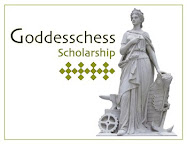



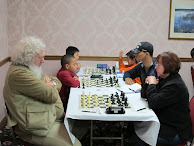

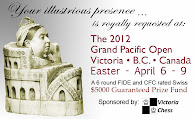

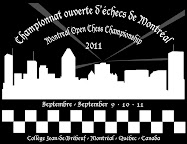










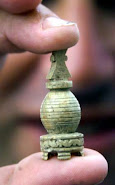











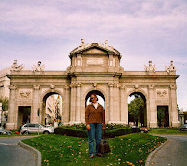


No comments:
Post a Comment